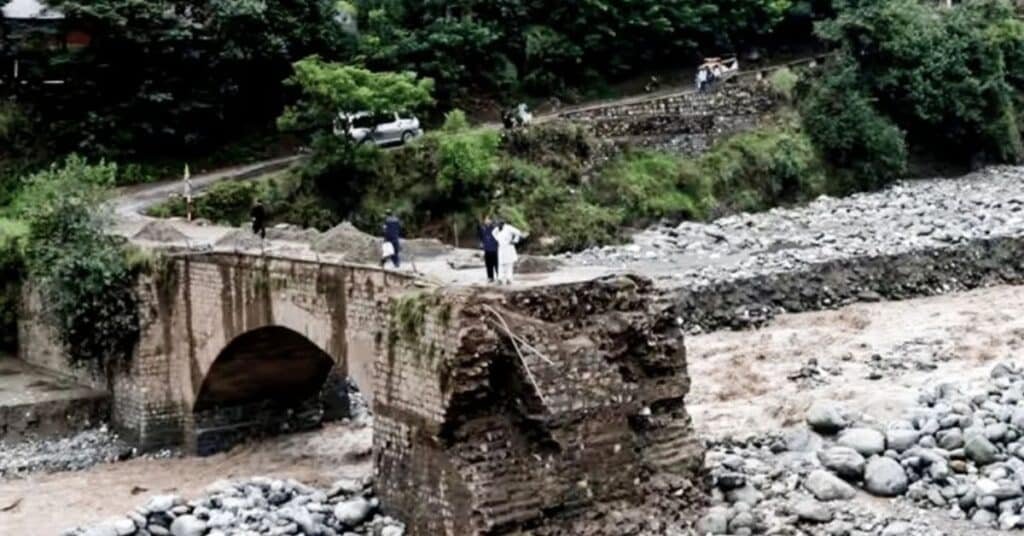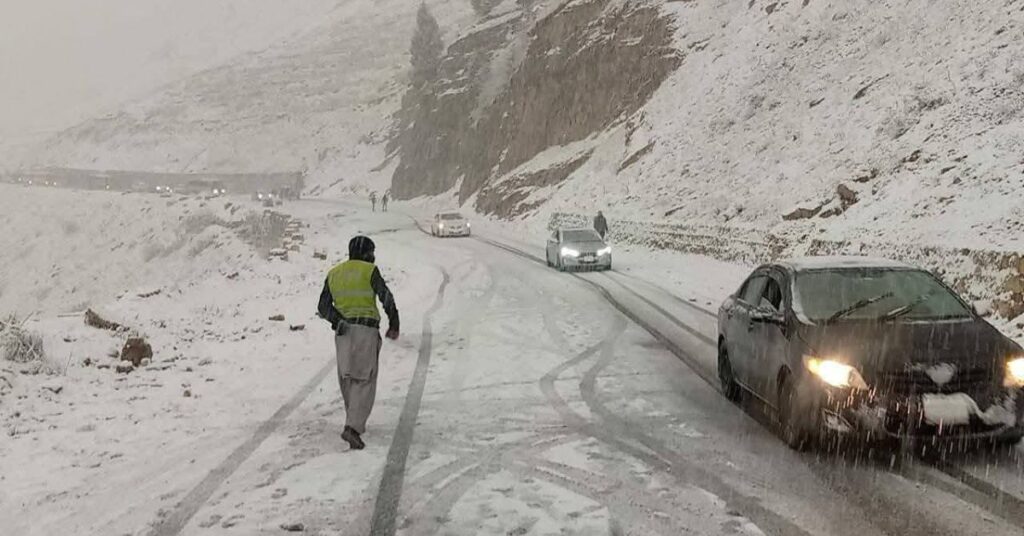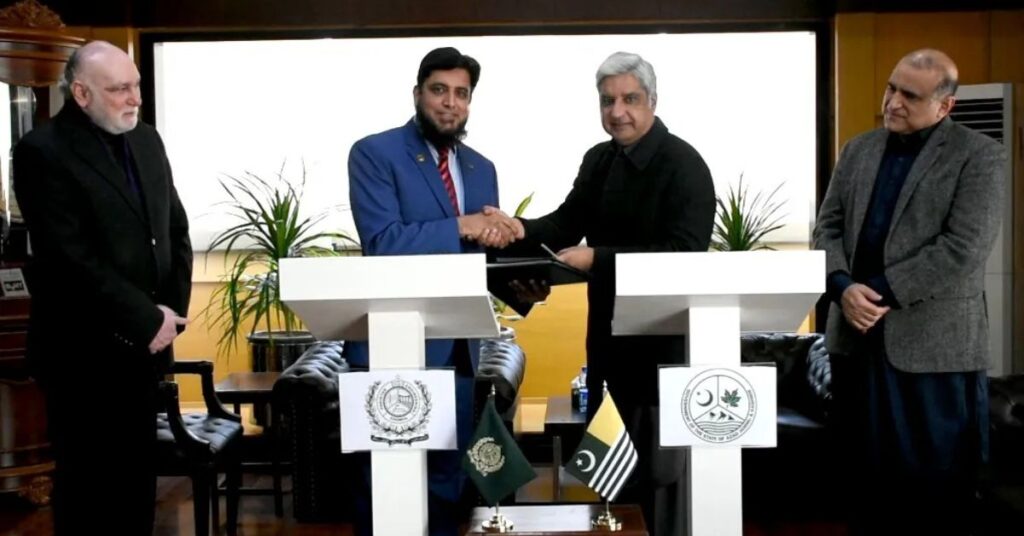MUZAFFARABAD (Kashmir Investigation Team/ Zulfiqar Ali): Despite being included in the Green Climate Fund (GCF) projects about six months ago, the Azad Kashmir government has yet to submit any project, which is increasing the apprehension that the region, caught in environmental crisis, might be deprived of GCF financial assistance.
Pakistan’s Ministry of Climate Change and Environmental Coordination had informed Azad Kashmir authorities on February 11, 2025, that they could submit a project or proposal worth up to $10 million to the GCF.
This was the first time Azad Kashmir had an opportunity to receive funding from the GCF.
The Green Climate Fund (GCF) is the world’s largest dedicated financial fund established to combat climate change.
This fund was established in 2010 under the United Nations Framework Convention on Climate Change to help developing countries mitigate the effects of climate change and adapt to them.
The lack of interest of Azad Kashmir’s political and administrative elite towards the effects of climate change, along with the lack of expertise, have complicated the situation.
An officer from Azad Kashmir stated that there is a continuous delay in submitting the project or proposal by the Government of Azad Kashmir, which is increasing the apprehension that the region might be deprived of GCF funding.
She said that the project has not even been prepared yet, let alone submitted. She attributed this to the government’s lack of interest.
Explaining this, she said that in 2015, a “Green Climate Cell” was established in the Planning and Development Department with the cooperation of the Asian Development Bank.
This cell included a Director General, a Director, a Deputy Director, and two Assistant Directors. This cell issued the notification for the Azad Kashmir Environmental Policy Implementation Committee.
Later, in 2017, the “Azad Kashmir Climate Change Policy” was prepared. To implement this policy, a “Climate Change Strategy” and an “Action Plan” were also formulated.
However, before the implementation phase of the policy, approximately three and a half years later, in 2019, the posts of Director General, Director, and two Assistant Directors in this cell were abolished, and the cell was transferred to the Environmental Protection Agency.
Now, the situation is that only one Deputy Director is present in this cell, while other important posts are lying vacant.
Officials say that there is also a shortage of experts in the Planning and Development Department, that led to delay in submitting projects or proposals to the GCF, and there seems no possibility for it in the near future either.
Environmental experts said that the attitude of the Azad Kashmir government is very disappointing because it is wasting a golden opportunity.
They said that the Azad Kashmir government should take advantage of this opportunity because Azad Kashmir faced many obstacles in accessing international financial assistance before.
According to documents, the Government of Azad Kashmir, through the International Union for Conservation of Nature (IUCN), submitted a project worth $37 million to the Green Climate Fund in 2019.
IUCN is an accredited entity with this fund, so the proposal was submitted through it. However, the fund rejected this proposal on the grounds that Azad Kashmir is a disputed territory.
A similar situation arose in 2021 when the World Bank also refused funding on the same grounds.
It is now clear that there may be a delay in the submission of the project or proposal by the Government of Azad Kashmir, and it may take time to obtain financial assistance.
Experts said that although access to the Green Climate Fund is an important development, it is not enough on its own. They say that until the institutional system in the region is strengthened, no financial assistance can yield lasting results.
Dr. Sardar Muhammad Rafique Khan, Deputy Director of the Climate Change Cell in Azad Kashmir’s Environmental Protection Agency, said that although international assistance is very important, to fully benefit from this, Azad Kashmir will have to strengthen itself institutionally and accreditation from the Green Climate Fund is also necessary.
Experts have warned that Azad Kashmir’s glaciers have melted dangerously over the past two decades. The main reasons for this include an increase in temperature, indiscriminate deforestation, warming of the earth’s surface, erratic weather patterns, and human activities.
Azad Kashmir’s Neelum Valley
In Azad Kashmir, glaciers are found only in the Neelum Valley. The Neelum Valley, known for the beauty of its snow-capped mountains, lush green plains, lakes, and rivers, is now facing extraordinary environmental challenges.
The melting of glaciers is not only affecting the local ecosystem but also putting severe pressure on water resources and agriculture.
According to a study by Dr. Sardar Muhammad Rafiq Khan, an expert in environmental affairs, the total area of glaciers in 2000 was 15110 hectares. By 2010, this area decreased to 13520 hectares.
This means a decrease of 1590 hectares in 10 years, which averages 159 hectares per year. From 2010 to 2017, this area further decreased to 11350 hectares. In 7 years, there was a decrease of 2170 hectares, which averages 309 hectares per year.
Overall, from 2000 to 2017, the area of glaciers has decreased by approximately 9.24%, which means an average annual decrease of 220 hectares.
If glaciers continue to melt at a rate of 220 hectares per year, an additional 1760 hectares will disappear by 2025, and a total of 5520 hectares will disappear, which is approximately 37% of the total area.
If the situation remains as it is, these glaciers could completely disappear in the next 43 years, i.e., by 2069.
If these glaciers continue to melt at a rate of 309 hectares per year, they will melt in the next 29 years.
Despite this situation, the government of Azad Kashmir’s attitude is very irresponsible, which has endangered the existence of the entire region.




